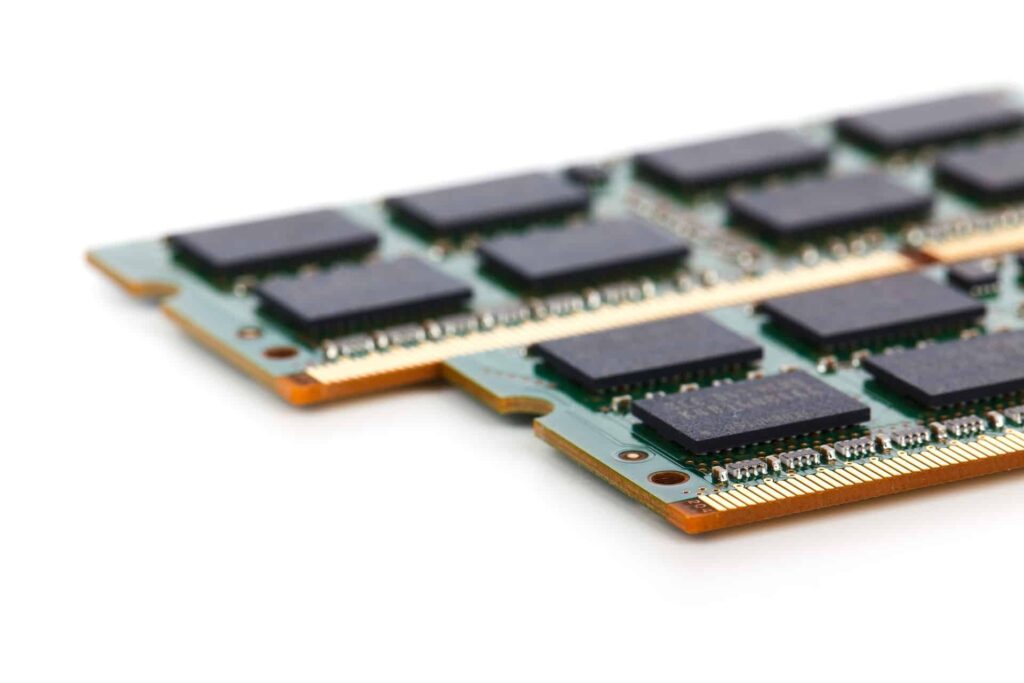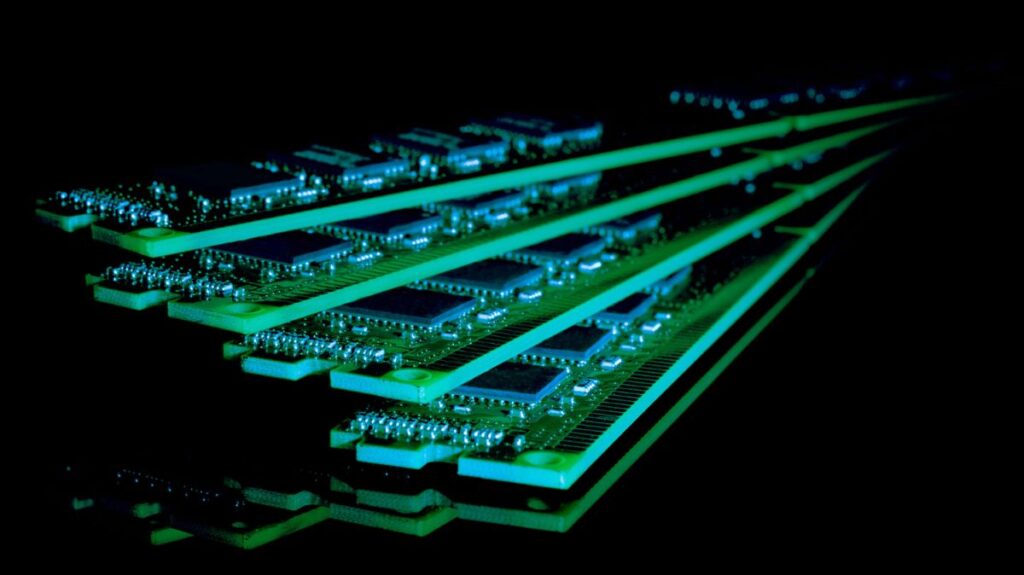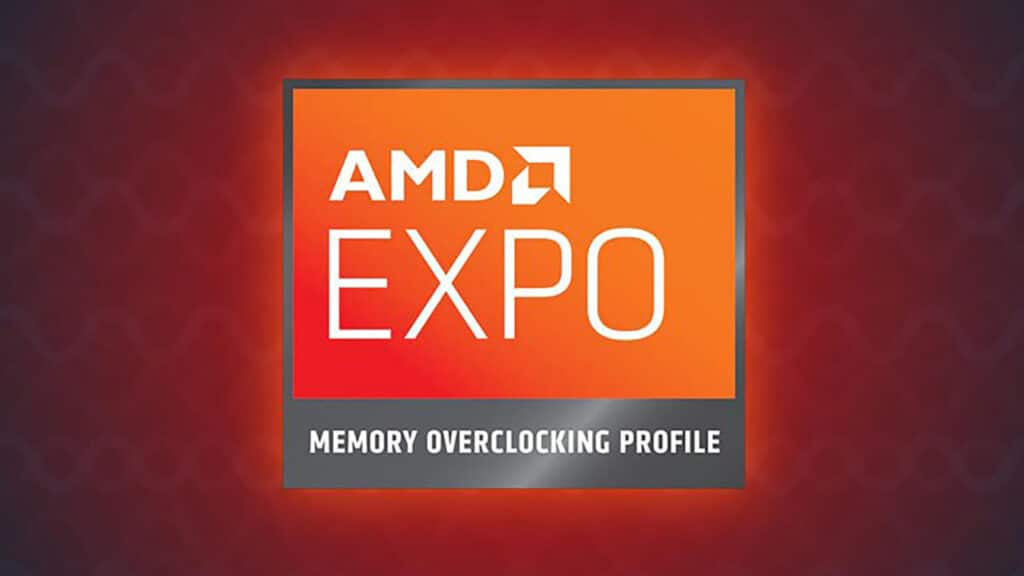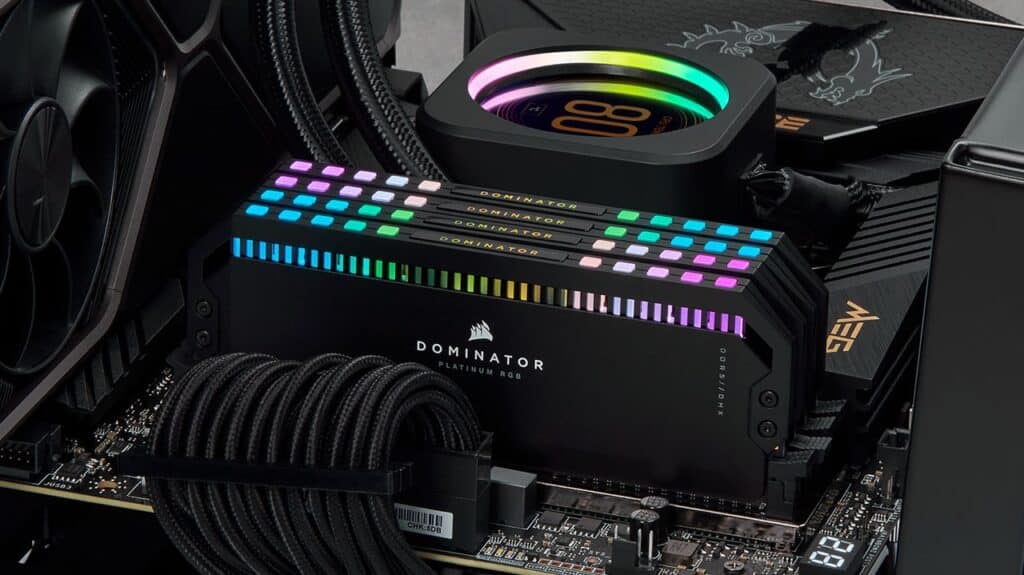Memory overclocking has become a common practice in the realm of PC building and customization. It is often recommended in modern PC building guides to enable your memory’s XMP (Extreme Memory Profile) profile in the computer’s BIOS mode to achieve improved performance.
Until recently, XMP was primarily associated with Intel technology, lacking an equivalent first-party alternative on the AMD side. However, this has changed with the introduction of AMD EXPO.
Contents
What Is Memory Overclocking?
Imagine this: You just got your hands on some top-notch DDR4-3200 RAM for your shiny new gaming PC. Excitedly, you install it and power up your system. But wait, something seems off. Your RAM is running at a mere 2133 MHz instead of the blazing-fast 3200 MHz you expected. Before you panic, memory overclocking can help you to get out of this pickle.
Memory overclocking is like giving your RAM a turbo boost. It allows you to make your memory run faster than its standard speed. You see, your RAM comes with a specific speed rating from the manufacturer, but it won’t automatically run at that speed. To reach the promised land of faster performance, you need to use a nifty feature called XMP (or similar technologies) found in your computer’s BIOS menu.
Enabling XMP profiles or memory overclocking profiles is the key. Head over to your BIOS settings and hunt for the XMP options. Once you’ve found them, it’s time to unleash the power. Enable a preset profile, save your changes, and reboot your system. Voila! Your RAM will now run at its intended speed, giving you the performance boost you desire.
Now, if you’re rocking an AMD system, things might look a little different. Instead of XMP, you’ll find similar settings labeled DOCP/EOCP. And guess what? Starting from Ryzen 7000 onwards, it’s getting a fancy new name: “EXPO.”
What Is AMD EXPO?
Introducing EXPO, the acronym for “EXtended Profiles for Overclocking” (previously known as AMD RAMP or Ryzen Accelerated Memory Profiles). It’s AMD’s response to Intel’s XMP technology and their own take on memory overclocking. Since the launch of the Ryzen 7000 series in 2022, AMD has embraced this technology, which works specifically with DDR5 memory modules.
EXPO is a nifty feature supported by a range of DDR5 memory kits from popular manufacturers like G.Skill, Corsair, Kingston, and Adata. It empowers users to push the limits of their memory’s performance by utilizing optimized profiles. Now, you might wonder, what if you have an older AMD PC and want to overclock your DDR4 memory? Fear not! In such cases, you’ll rely on third-party overclocking technology.
While Intel’s XMP is exclusive to Intel and EXPO is geared towards newer AMD systems with DDR5 memory, there are still fantastic options available for DDR4 memory overclocking on older AMD platforms. Various third-party tools and software come to the rescue, allowing you to fine-tune your memory settings manually. Programs like Ryzen DRAM Calculator, Thaiphoon Burner, and even your motherboard’s BIOS settings provide the means to squeeze out that extra performance.
These third-party tools enable you to adjust important memory parameters like timings, voltage, and frequency, giving you the ability to maximize the potential of your DDR4 memory.
Will DOCP or EOCP Effect Your Overclocking
You may have come across the terms DOCP and EOCP while exploring your BIOS settings. DOCP, created by Asus and standing for Direct Overclock Profile, and EOCP, developed by Gigabyte and standing for Extended Overclock Profiles, serve a similar purpose. The specific one supported by your motherboard shouldn’t make a significant difference. With EXPO, AMD has taken the reins of memory overclocking. While there are no functional differences between Intel’s XMP and AMD EXPO, many DDR5 kits are compatible with both technologies, allowing them to coexist harmoniously.
However, there are a few distinctions worth noting. XMP is a closed-source standard, which requires manufacturers to obtain a license from Intel to support it. On the other hand, AMD EXPO follows the open-source philosophy of other AMD technologies, enabling anyone to utilize it. Interestingly, due to its open nature, it is technically possible for Intel platforms to support AMD EXPO. This stands as the primary divergence between XMP and EXPO.
Both technologies enable memory overclocking, and both can achieve the same clock speeds. Ultimately, whether you opt for XMP or EXPO, rest assured that you have the tools to unleash the full potential of your memory and elevate your system’s performance to new heights.
When building an AMD PC and considering memory overclocking, it’s important to ensure that the RAM you choose is AMD EXPO-compatible. While EXPO is an open standard, it is still relatively new compared to XMP, which has been established for many years.




